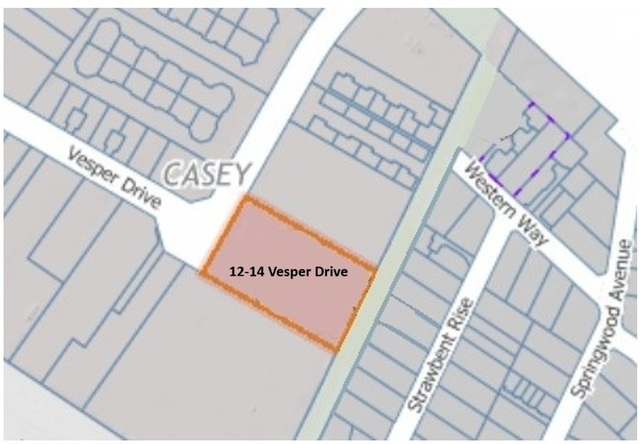Nearly $11 million in grant funding will be provided for CFA brigades to purchase new equipment for support in protecting their communities.
The Victorian Government’s Volunteer Emergency Services Equipment Program (VESEP) funding was announced on Thursday 23 November at the Harcourt Fire Station by the minister for emergency services Jaclyn Symes.
For the Narre Warren SES branch, this grant was critical in serving as a larger portion for acquiring a new four-wheel-drive emergency vehicle, and the equipment needed to supply it.
Damian Burns, unit commander for the branch was thankful for the grant and added that it recognised that a lot of emergency services are volunteer-run.
“This year we’ve been successful in getting funding for a replacement four-wheel drive since our current one is now around 10 years old,” Mr Burns said.
The Narre Warren branch received roughly $92,650 from the VESEP grant, using it to not only supply a new vehicle but to equip it with the proper tools and hardware for emergency situations.
However, a further amount of $32,000 has been acquired through fundraising efforts in order to further stock the vehicle.
“The $93,000 that we’re getting isn’t all that it will cost, it’ll be another $32,000 to also pay for the vehicle which will be kitted up to standards of the State Emergency Service.
“It has to have the decals, the lights and the response equipment which is fairly expensive, the grant assists us but we also have to supply it with our own funds,” Mr Burns said.
The new vehicle is kitted with all-terrain tyres, and hybrid four-wheel drive and fashioned with a large array of tools for emergency situations, such as a winch, traffic control devices, and basic response equipment with PPE.
“Emergency services vehicles and equipment cost a lot of money, and because of the reliability we have, after 10 years we have to start replacing the equipment.
“Our equipment is not allowed to fail, it has to be reliable, we can’t have vehicles and equipment not function when people depend on us,” Mr Burns said.
The branch currently operates around a business continuity plan where they constantly monitor vehicles’ livelihood, with operational costs and finances managed closely.
In the 2022-23 grant period by the VESEP, the Narre Warren unit received $150,000 in funds, which Mr Burns said not only went into vehicles but also tools such as ropes and chainsaws.
“We’ve got four operational vehicles, a general rescue vehicle and a general rescue support vehicle, and the amount of equipment on that is colossal with their expense being quite high as well.”
A more recent endeavour by the unit is slowly transitioning towards battery-based tools, in an effort for more efficient processes.
“We used to have hydraulic tools that would need to operate close to the trunk, now we have a lot of battery-operated rescue tools that no longer have to be connected,” Mr Burns said.
An example he used was lighting, which previously would be corded to a generator that was fuel-based and would produce heat and smoke.
But as of now, battery-powered tools are being utilised, such as chainsaws and general lighting stands.
“It makes us faster to deploy, makes us more reliable and gives us the ability to quickly change what we need to do and there are less work, health and safety risks to us and the public,” he said.
















